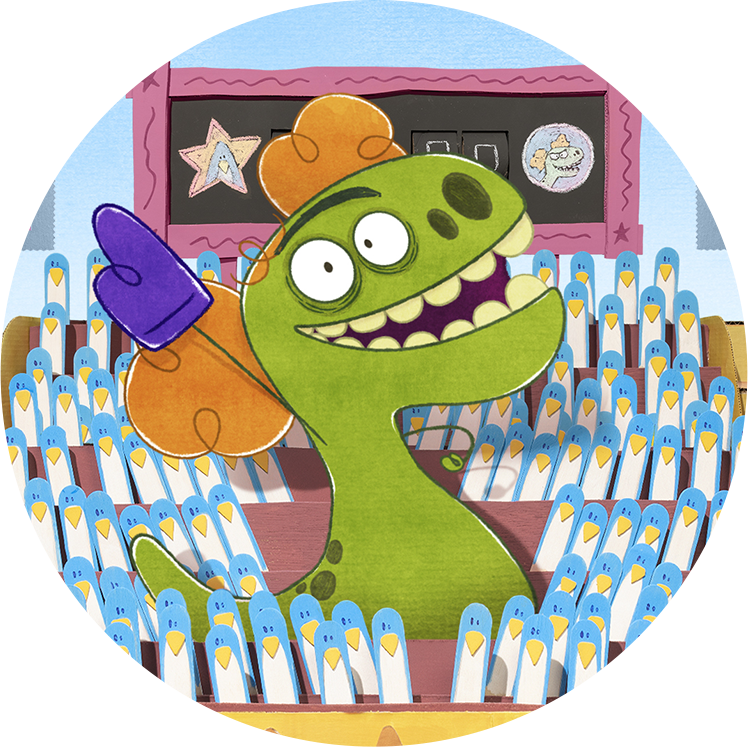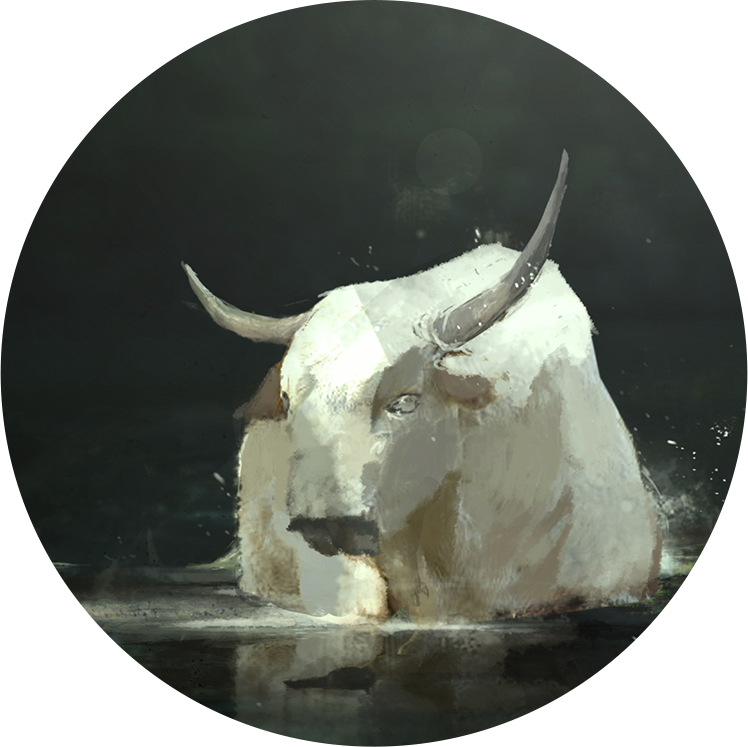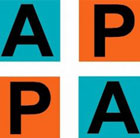
Despite high standards in Portugal’s animation sector, the industry faces funding challenges and struggles with talent migration, but increased government understanding and financing could significantly enhance production and retain local talent.
Shoots of growth
While there are only around 15-20 companies producing animation in Portugal, the work they are producing is to a high artistic and technical standard. Auteur-driven animated shorts are the dominant format in Portugal, rather than original features or series.
Animation production in Portugal is highly dependent on state support. Funds are distributed by The Instituto do Cinema e do Audiovisual (Portuguese Film Institute), which supports the production of between eight and ten shorts a year via grants. Successful Portuguese animated shorts include Agouro, directed by David Doutel and Vasco Sá; The Garbage Man, directed by Laura Gonçalves; and Ice Merchants, directed by João Gonzalez.
The Portuguese Film Institute also provides support for animated films, providing €1m every two years. This has led to the creation and release of the first stop-motion animated feature from Portugal, My Grandfather’s Demons, in 2022.
Lack of support for local talent
A cash rebate is available to up to 30% of the cost of production for projects with a budget between €500,000 and €4m, while a tax rebate is available for higher budget projects. However, hopes that this will help make Portugal a more financially viable place to produce animation in the future have been dimmed by the complicated nature of the application process.
Meanwhile, with public funding for series standing at only €500,000 per year, a lack of funding sources for series is the main barrier to the overall growth of the Portuguese animation sector.
There are a growing number of animation schools in Portugal and the country has a knack for producing talented artists. However, the lack of work available in Portugal for animators has resulted in a significant amount of talent leaving to work in European countries such as Ireland and France where there are more job opportunities for animators. It is hoped that if animation production in Portugal were to grow, this professional talent could return with their expertise and contacts in tow. Portugal is also an attractive destination for remote workers, which could help bring talent from other parts of Europe to the country.
The sector suffers from a lack of support from most local broadcasters in Portugal and public broadcaster RTP is the only Portuguese broadcaster to invest in domestic animation on a regular basis. This has led to series such as Alice’s Diary, which has been sold to broadcasters around Europe and Spanish-language children’s television channel VME Kids in the United States.
Growing international awareness
Awareness around the artistry and strong potential of the Portuguese animation sector and its IP has grown following initiatives at European events such as Cartoon Forum in 2021 and The Annecy Festival in 2024. Local producers are developing their own IP and seeking opportunities to collaborate with countries such as Brazil and the Spanish-language market globally to access funding outside of Portugal.
Increased understanding of the sector from the Portuguese government alongside more financing opportunities would make a significant, positive impact on animation production in Portugal and help create an industry equipped to make the most of its distinctive talent.

Despite high standards in Portugal’s animation sector, the industry faces funding challenges and struggles with talent migration, but increased government understanding and financing could significantly enhance production and retain local talent.
Shoots of growth
While there are only around 15-20 companies producing animation in Portugal, the work they are producing is to a high artistic and technical standard. Auteur-driven animated shorts are the dominant format in Portugal, rather than original features or series.
Animation production in Portugal is highly dependent on state support. Funds are distributed by The Instituto do Cinema e do Audiovisual (Portuguese Film Institute), which supports the production of between eight and ten shorts a year via grants. Successful Portuguese animated shorts include Agouro, directed by David Doutel and Vasco Sá; The Garbage Man, directed by Laura Gonçalves; and Ice Merchants, directed by João Gonzalez.
The Portuguese Film Institute also provides support for animated films, providing €1m every two years. This has led to the creation and release of the first stop-motion animated feature from Portugal, My Grandfather’s Demons, in 2022.
Lack of support for local talent
A cash rebate is available to up to 30% of the cost of production for projects with a budget between €500,000 and €4m, while a tax rebate is available for higher budget projects. However, hopes that this will help make Portugal a more financially viable place to produce animation in the future have been dimmed by the complicated nature of the application process.
Meanwhile, with public funding for series standing at only €500,000 per year, a lack of funding sources for series is the main barrier to the overall growth of the Portuguese animation sector.
There are a growing number of animation schools in Portugal and the country has a knack for producing talented artists. However, the lack of work available in Portugal for animators has resulted in a significant amount of talent leaving to work in European countries such as Ireland and France where there are more job opportunities for animators. It is hoped that if animation production in Portugal were to grow, this professional talent could return with their expertise and contacts in tow. Portugal is also an attractive destination for remote workers, which could help bring talent from other parts of Europe to the country.
The sector suffers from a lack of support from most local broadcasters in Portugal and public broadcaster RTP is the only Portuguese broadcaster to invest in domestic animation on a regular basis. This has led to series such as Alice’s Diary, which has been sold to broadcasters around Europe and Spanish-language children’s television channel VME Kids in the United States.
Growing international awareness
Awareness around the artistry and strong potential of the Portuguese animation sector and its IP has grown following initiatives at European events such as Cartoon Forum in 2021 and The Annecy Festival in 2024. Local producers are developing their own IP and seeking opportunities to collaborate with countries such as Brazil and the Spanish-language market globally to access funding outside of Portugal.
Increased understanding of the sector from the Portuguese government alongside more financing opportunities would make a significant, positive impact on animation production in Portugal and help create an industry equipped to make the most of its distinctive talent.

APPA
Founded in 2003, the Association of Portuguese Producers of Animation (APPA) brings together the majority of animation producers in Portugal and is one of the two institutional partners that represent these activities, alongside the Association of Animators.
APPA is a recognised partner of RTP, Portugal’s national public television channel. Over the years, APPA has contributed to the formulation of the legislation that regulates animation activity in Portugal.


 Animation in Portugal
Animation in Portugal